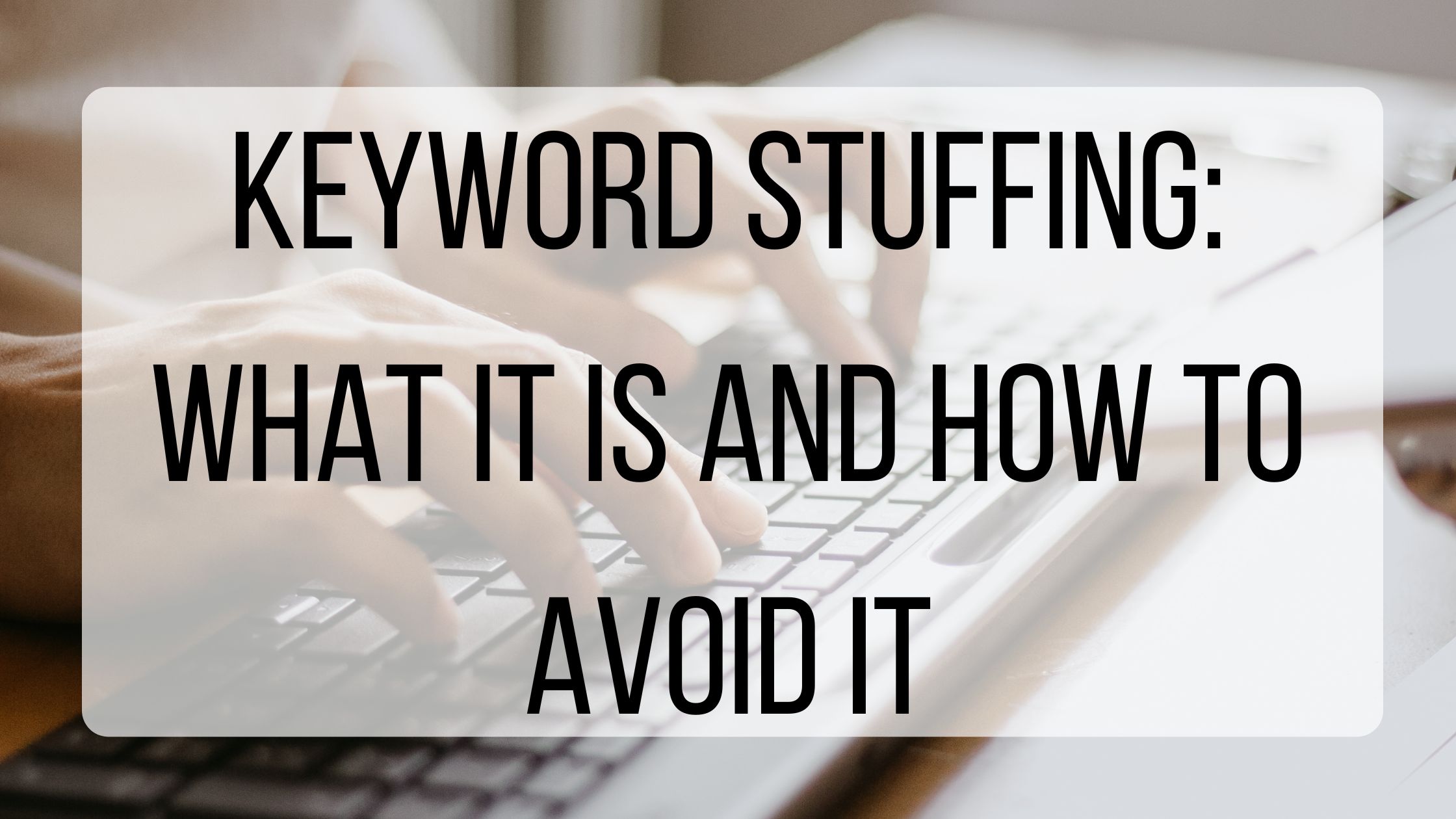Keyword Stuffing: What It Is And How To Avoid It

When getting started with SEO, using keywords is often something that many people focus on. Using the right keywords can help your audience find your page, and helps boost you on search engines. However, using the wrong keywords, or overusing keywords, can penalize you in your ranking. Overusing keywords, also known as keyword stuffing, can prevent you from getting the results you are aiming for.
What Is Keyword Stuffing?
Keyword stuffing is using too many keywords, using the same keywords over and over again, and inserting keywords into content where they are not relevant. Usually, keyword stuffing occurs when marketers are trying to boost their content or make it seem like it pertains to a wider audience when it does not.
Why You Should Avoid Keyword Stuffing:
In the past, keyword stuffing was seen as an easy way to “cheat the system” and rank higher on search engines. However, since search algorithms have evolved they are now able to better recognize when keywords do not belong. If you keyword stuff and the algorithms pick up on it, you will be penalized, knocking down your ranking significantly.
User Experience With Keyword Stuffing:
Not only does keyword stuffing hurt your search ranking, but it can hurt your user experience as well. Over-using words or trying to squeeze in words that you think your customers will want to see can make copy confusing or unpleasant to read. Carefully proofread to make sure that your content is clear and concise. You are trying to please your customers, not the search engines, and creating content that they are drawn to is the most effective way to help your SEO.
How To Avoid Accidental Keyword Stuffing:
When writing content, it is natural to repeat some words and phrases, especially those that pertain to the topic at hand. Once you are done writing, go over what you have and look for keywords or phrases you might be over-using. If you have someone else willing to look over your work as well, that can help you catch repetitive language you might not have noticed.
When using keywords, make sure your language flows and your sentences are easy to read. Try writing without your keywords in mind, and see what comes naturally. If you are writing about a specific product or topic, chances are your keywords will be easy to incorporate. When it’s time to proofread, determine if you need to add your keywords in anywhere else. Chances are you’ll have mentioned them enough without repeating yourself often.
Keyword Stuffing is often something that you can unlearn pretty quickly. Adding keywords is a great way to boost your SEO, as long as you are careful. Put your focus on creating content that you audience will understand and enjoy. Is keyword stuffing something you have struggled with when writing? What practices do you use to avoid keyword stuffing?


